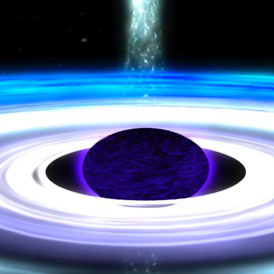Neutrinos remain faster than light after new tests
Scientists who claimed to have measured particles travelling faster than light say new tests support their findings. Channel 4 News speaks to Prof Jon Butterworth about what this may mean for science.

Following the scientists’ announcement in September – which was greeted with much scepticism – the latest experiment was designed to replicate the test whilst eliminating factors that could have compromised accuracy.
“A measurement so delicate and carrying a profound implication on physics requires an extraordinary level of scrutiny,” said Fernando Ferroni, president of the Italian Institute for Nuclear Physics.
“The positive outcome of the test makes us more confident in the result, although a final word can only be said by analogous measurements performed elsewhere in the world.”
If the findings are, in fact, true, then the implications for the way we understand how the essential nature of the universe would be profound, because they challenge one of science’s universally-accepted theories Albert Einstein’s theory relativity,that nothing can travel faster than light, because light is a “cosmic constant”.
This would force a major rethink of theories about how the cosmos works and even mean it would be possible, in theory, to send information into the past.
Read more: Is Einstein wrong about speed of light?
Following September’s spectacular announcement, Professor John Ellis, a leading particle physicist told Channel 4 News that if true, the research would really “revolutionise” physics but that it was too early to start talking about time travel: “I’m sorry but I just don’t think this is going to lead to realistic time travel. It’s a very subtle phenomenon in extreme circumstances,” he said.
That first finding was recorded when 15,000 neutrino beams were pumped over three years from Cern to Gran Sasso, an underground Italian laboratory near Rome.
Physicists on the experiment said they had checked and rechecked over many months anything that could have produced a misreading before announcing what they had found.
Jacques Martino, director of the French National Institute of Nuclear and Particle Physics, who worked on the second experiment, said that while this test was not a full confirmation, it did remove some of the potential systematic errors that may have occurred in the first one.
“The search is not over,” he said in a statement. “There are more checks of systematics currently under discussion.”
Read more: Einstein's theory: when science thinks twice
Christos Touramanis, who heads a neutrino research team at Liverpool University and is involved in scrutinising the result as part of Cern’s scientific committee, agreed the new test with short beam bunches had excluded one possible source of systematic errors, but said “a number of other possible effects” still needed to be checked.
“Ultimately, full independent confirmation will be required before accepting this result as accurate,” he said.